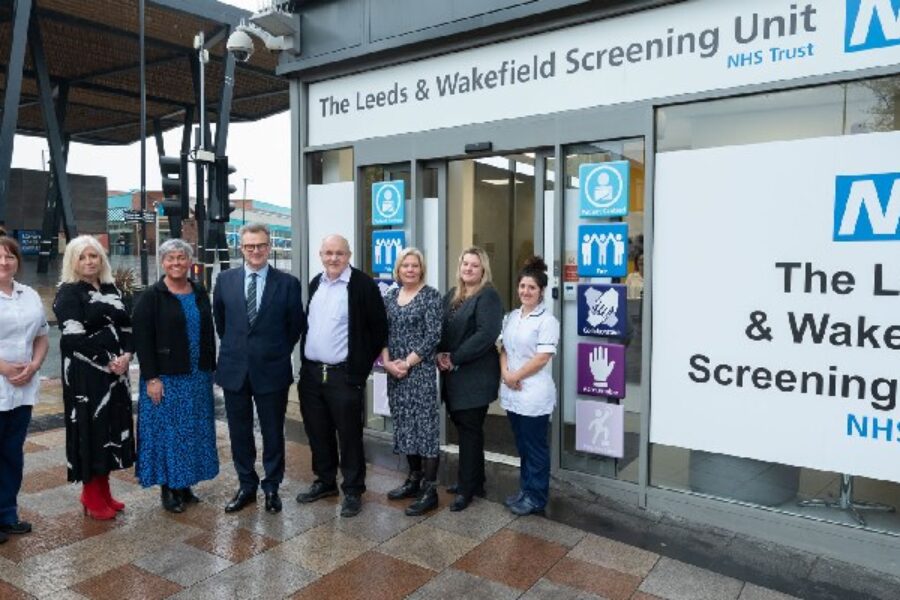
More than 180,000 women aged 50-70 years old are screened for breast cancer every three years across the Leeds and Wakefield Breast Screening Service, and a brand new clinic in Wakefield is set to make a positive impact and work to reduce health inequalities, particularly for those with accessibility needs.
As a result of the pandemic, in July 2020 there was a screening backlog of 12,000 women in the Leeds and Wakefield districts. Today the breast screening teams of Radiographers, Nurses and administration personnel are celebrating zero backlog.
The new centre opens in Wakefield’s Trinity Shopping Centre. It is on the ground floor, has great transport links, is wheelchair accessible and has been fitted with brand new equipment, including a specialised mobility chair donated by Leeds Hospitals Charity. It is hoped that women with accessibility challenges, who previously travelled to the service at Seacroft Hospital and St James’ in Leeds, will now more readily take up their appointment, as national NHS statistics highlighted recently that nearly four in 10 women did not take up the potentially lifesaving offer of screening.
Professor Phil Wood, Chief Executive, Leeds Teaching Hospitals NHS Trust, officially opened the screening centre. “I’m delighted to see this centre up and running and already with a full appointments book of more than 45 women daily. I’m passionate about how we can improve access to healthcare for our patients and the new screening clinic will ensure that those in Wakefield and further south have better options to access healthcare, such as this vital screening.”
The National Health Service Breast Screening Programme (NHS BSP) at Leeds Teaching Hospitals offers screening appointments to an average of 61,000 people annually, aged between 50-70 years old. Screening units are located at St James’ University Hospital, Seacroft Hospital, Wakefield Trinity, Wharfedale Hospital and with three mobile units making screening as convenient as possible for those called.
Regular screening can help flag any irregularities, with approximately 1,800 patients requiring further assessment after their initial mammograms. These women are then seen and examined at Seacroft Hospital under the supervision of a Consultant Breast Radiologist. Further mammograms, ultrasound scans and biopsy procedures are frequent.